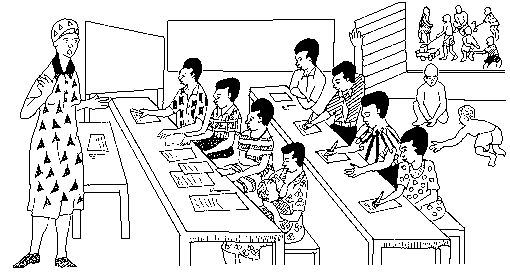Translations:
Weitere Seiten:
Einheiten
Schlüsselwörter
Soziologie:
Soziologie
Notizen zur Vorlesung
Diskussions-Forum
Nützliche:
Sitemap
Kontakt
Notwendige Dokumente
Nützliche Links
THE SOCIOLOGY of COMMUNITIES
The Focus of Our Interest and Affection
by Phil Bartle, PhD
übersetzt von xxx
Einführung in das Modul
In diesem Modul über Template finden Sie die folgenden Dokumente:
- Community
- Community Based Social Work in Refugee Camps
- Community Characteristics
- Elements of Strength
- Neo Gemeinschaft
- Preliminary Community Data
- Questions on Community Based Social Work
- Thesaurus, Community
- What is Community?
- Textbook: Sociology of Communities; an introduction
- Web References for the Textbook
- Family and Community (Course outline)
- Web References for Family and Community
- Discussions, Interventions via the community
The community is both an object to be strengthened and a subject to be studied
While the community is the main focus of the practical or applied sociology of this site (how to strengthen it), it is also a social institution which is studied as part of the sociological investigation of culture and social organization.
This module looks at some of the sociological questions and topics related to community.
This module is composed of lecture notes for the beginning student of society.
As well as looking at various definitions and descriptions of community, it also looks at community characteristics.
Ferdinand Tönnies used the two words gemeinschaft (community) and gesellschaft (society) to distinguish between elements of informal, warm and fuzzy, spontaneous social organization and elements of formal, cold, codified and ordered social organization.
Following his approach, we use the two German words in English to identify elements of either as degrees of one or the other, not merely as absolute categories.
An important discovery is that there is a very thin line between communities and families.
Among many non western groups (such as the First Nations peoples in Canada), the kin group often is the community.
As we recognize a wide variety of family arrangements, many of them increasingly appear to be the same as communities.
Another important discovery is that our psychological makeup, which has not changed much in the past 50,000 years, makes us more comfortable in small face to face groups where we know everybody, in contrast to the anonymity of urban settlements.
This appears to be the energy behind our creating new gemeinschaft arrangements, where we form associations, including those on the internet, and learn first names of service personnel (eg bus drivers and deli clerks) to create the illusion that we continue to live in a gemeinschaft environment, in spite of the rapid pace of urbanization and growth of gesellschaft.
See: What is Community?
──»«──
A Training Session:
 |